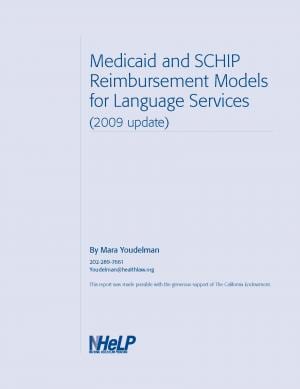*NHeLP recognizes that the term “mental retardation” is offensive, outdated, and harms the disability community. NHeLP generally uses the term “intellectual disability.” However, this document uses the term “mental retardation” only to accurately conform to the now-outdated version of federal or state law in effect at the time the document was created. Because we have determined that the document provides valuable information not otherwise available, we continue to provide access to it through our website.

